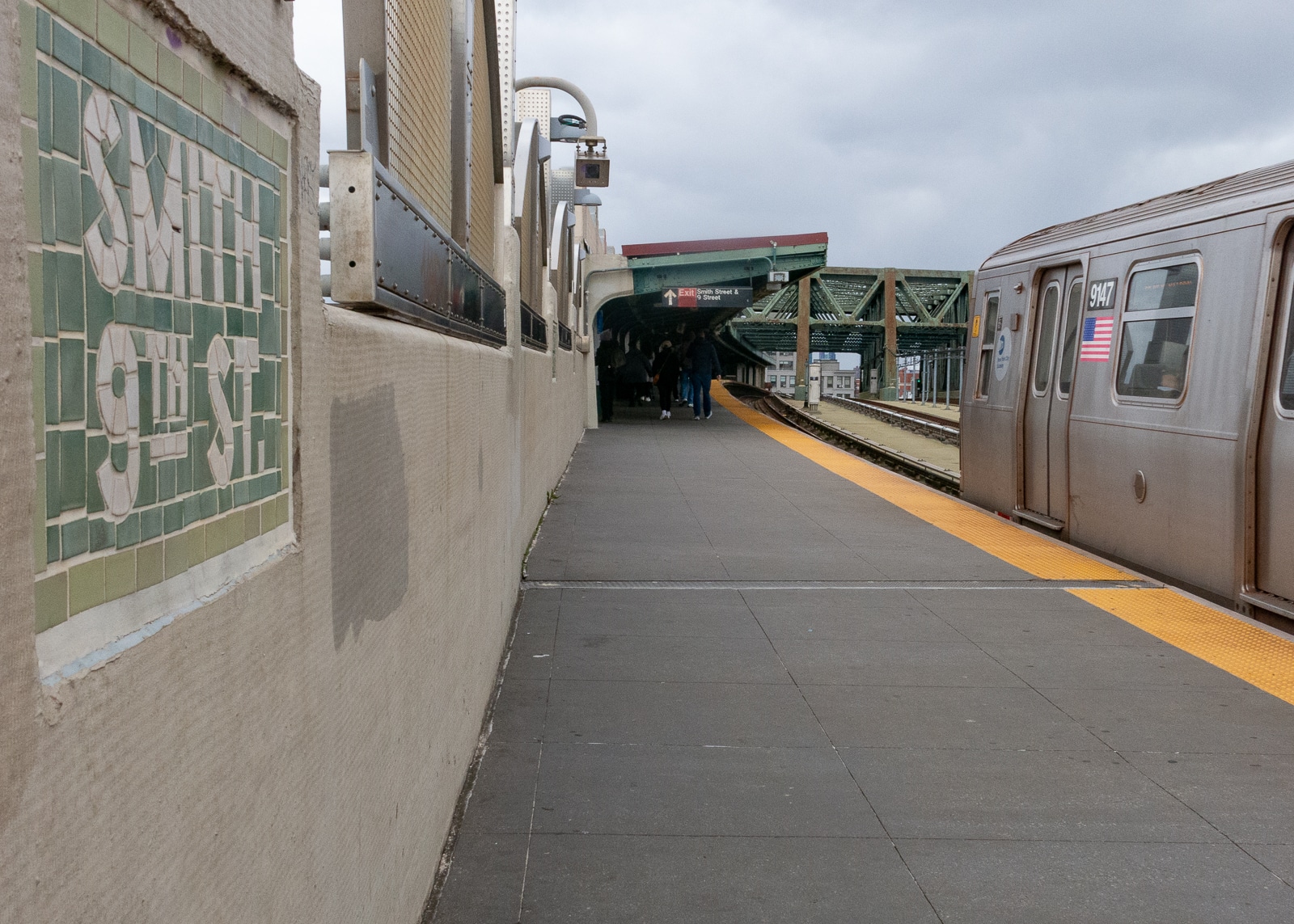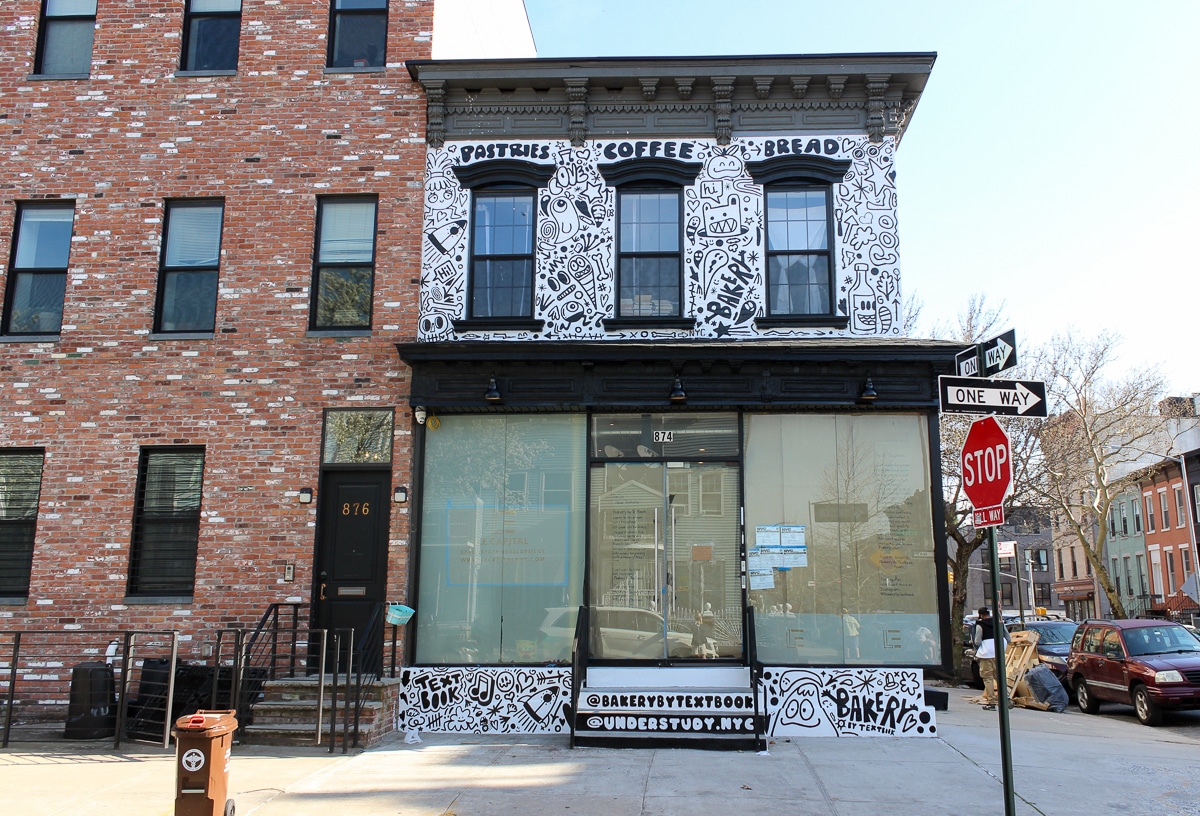Walkabout: Stretching Forth the Saving Hand, a True Story, Part One
Read Part 2 of the story. Sometime in the late 1870s, a group of well-meaning, pious souls established a Methodist mission church in a building in Greenpoint that had been for many years been a tavern and gathering place for Democratic politics. Fittingly enough, this new house of the Lord was dedicated to the cause…


Read Part 2 of the story.
Sometime in the late 1870s, a group of well-meaning, pious souls established a Methodist mission church in a building in Greenpoint that had been for many years been a tavern and gathering place for Democratic politics. Fittingly enough, this new house of the Lord was dedicated to the cause of Temperance, the eradication of alcohol in American society.
The evils of drink could be found everywhere: children orphaned on the street, abandoned by drunken parents, jails and workhouses teeming with drunks, and crime committed by those desperate for money to buy their next drink, or made violent by alcohol.
The Victorians, who could be a generous people, had little sympathy for drunks. It was often left to the churches to reach out to these people to help them get their lives together, and often large congregations would open small mission churches within a targeted neighborhood, and get down in the trenches, as it were, to help people.
As with many forms of social persuasion, it often took a person of great charisma and oratory to get people to part with their money, or feel compassion for people who seem to have chosen to obliterate themselves. The most successful preachers had to have a bit of the showman to be able to paint a picture to their listeners, perhaps of the horrors of a drunken life, or of the blessings of giving.
Most of the men, and occasional women, who preached temperance and generosity towards their fellows were well meaning, good people. And then there was the Reverend William T. Gibb. He was in a class by himself.
Brooklynites were first introduced to the Rev. Gibb in 1893. It was said he was originally from Halifax, Nova Scotia, and had come to the United States to become an actor. After knocking around the boards for many years rather unsuccessfully, he had his “come to Jesus” moment when he heard the calling of the Lord, who told him to give up theater and take up preaching.
Like many before and after him, he put on the collar and began calling himself “Reverend,” without the little step of going to Divinity School, or becoming any kind of religious scholar. His acting experience had given him a charismatic stage presence, and a good sense of delivery, and he found himself in the pulpit of the City Temple Mission at 44 Meeker Avenue, in Greenpoint, extolling the virtues of the drink-free life, and the saving grace of God.
He was good. He was dramatic, extremely sincere, and he had a powerful speaking voice that could be heard in a crowd. He often had his congregation in the palm of his hand, and the Methodists who ran the mission had made him the permanent preacher there, in charge the church. He and his wife lived in quarters in the rear of the building, which by 1893 was called the Williamsburg and Greenpoint Mission.
In April of 1893, Rev. Gibb and the church were coming to the end of a two week revival meeting. April 19th was the final night, and the revival was to be ended with what they called a “love feast,” a communal dinner with the congregation and guests. The ladies of the church had prepared a pot luck dinner, tables had been set up, and all was ready for the feast.
The meal was blessed by Gibb, who was seen talking to new converts as well as the stalwart faithful. After it was over, the Rev. was seen putting on his coat. He told his wife he was going out for some fresh air, and he’d be back in a moment. He then walked out, and never came back. That was disconcerting enough, but another member of the congregation was also missing, and never came home. That member was Mrs. Alonzo Frost. She had last been seen right at the end of the meal, when she left to go home to her husband. Could it be a coincidence? Or was something else going on here?
Mrs. Kate Frost also lived in Greenpoint, on Humboldt Street. Her husband, Alonzo, was a driver. They had been married for a number of years, and had three children; an older married daughter, a 19 years old son, and 13 year old daughter. Two days before she disappeared, Mrs. Frost had cashed in an interest she had inherited in a building, and received $100. She paid two months’ rent on the rooms Rev. Gibb and his wife lived in, behind the meeting room, and disappeared with the rest. She also took her younger daughter with her.
The Mission was in an uproar. No one could believe that Rev. Gibb and Mrs. Frost had run off together. It was a coincidence, they said. Mrs. Gibb said that her husband would not have deserted her. He had talked of moving to South Amboy, and perhaps had gone there to scout out a new home.
She was sure he’d be in touch soon. Mr. Frost was less certain. He told reporters that he and his wife had quarreled, and she told him she might go visit her sister in Richmond, Virginia. He hoped that she was on her way there, and would get in touch as soon as possible. She had their daughter. The older daughter, Mrs. Roembeck, said that her mother had told her she was going south for her health. She hoped to hear from her soon, as well.
Almost a month passed, and no one heard from either Mr. Gibb or Mrs. Frost. After denying for weeks that her husband could have done such a thing, Mrs. Gibb now believed that her husband had left her. Alonzo Frost was now convinced that his wife had run off with the preacher, too. He was angry, hurt, and not thinking clearly. On May 4th, he went over to the church and confronted Mrs. Gibb. If his wife and her husband were together, he told her, he didn’t see why he and she couldn’t be together.
A bit of quid pro quo, as far as he was concerned. Unfortunately, Mrs. Gibb wasn’t interested, and after getting rejected, Mr. Frost pulled out a revolver and threatened to shoot Mrs. Gibb. As he brandished the pistol, he told her that he had brought it to shoot Gibb, if he had returned, and he may as well shoot her. Somehow she got him to put the gun away, and go home. Mrs. Gibb then went to the police and had Alonzo Frost arrested.
Standing before the magistrate, Alonzo Frost was pitiful. He hadn’t gone to the church to kill Mrs. Gibb, he told the judge, and he just didn’t know what to do. His wife had disappeared with their child, and he was helpless. He had hoped Mrs. Gibb would have been amenable to being miserable together. The judge was very sympathetic, and took him aside for a long talk, and afterwards, suspended any sentence, and sent the poor man home. Mrs. Gibb’s rent at the mission had been paid for another month, but afterwards, she had to leave, and for a time, she disappears from our story.
The very next day, the headlines made the front page of the Eagle: “Gibb is in Halifax.” The prodigal had gone home. A Brooklyn man had a Halifax connection who had written to tell him that William Gibb and Mrs. Frost were in Halifax, running a revival meeting at the Jost City Mission. They were very successful, and told the people there that they were man and wife.
Gibb, who had advertised himself as a “reformed actor” and his “wife” were in the middle of a revival run, and according to the Halifax source, “They are from New York and are very clever people and have done much good here, converting hundreds to the faith of Jesus Christ. Their meetings have been characterized by the greatest enthusiasm and many hundreds of souls are saved. They propose to stay here for several weeks, by which time it is believed that Halifax will be redeemed.”
Halifax’s redemption would have to be postponed. When news of the “converted actor” and his “converted wife” reached that Canadian city; the next day, thanks to the wonders of the telephone, the Jost City Mission folk were not amused. The lights were brightly strung around the room, and Rev. Gibb had his Bible and books under his arm, ready to roll.
Mrs. Gibb’s job was to sing. She had a beautiful voice, and her sweet tones were very instrumental in moving the hearts of the unsaved towards salvation, but she would not be singing tonight, or any other night in Nova Scotia. The revival had been going on for a couple of weeks straight, but that night, the Gibb’s showed up ready to preach, and no one was there except the leadership of the mission, looking about as happy as Puritans at a Halloween party.
They demanded an explanation. Was Rev. Gibb the same man as the dastardly coward who had run off with another man’s wife? Was “Mrs. Gibb” the woman who had abandoned her husband, and taken her child away from her father? How dare they stand before God and man and preach salvation and redemption?
William Gibb vehemently denied being that man, and said the whole thing could be taken care of and explained, but he really wanted to continue with the revival. There were souls to be saved! Unfortunately, the Canadian good will had been withdrawn, and the mission leadership turned off the lights, and barred the doors. This revival was over.
The Brooklyn Eagle reached Gibb for an interview. He told the reporter that “I am not the party mentioned in the New York Sun. Five weeks ago I left New Jersey for Worchester, Mass. and then Boston, then I came here… When I was in New York, there was someone there masquerading as me, I think that was the same party as the man in the story.”
William Gibb’s home town of Halifax was no longer a welcoming port. So there was nothing to do but to go home, right? We’re back in Brooklyn, next time, for the conclusion of our story. It gets even stranger, but then, that’s what makes this town great.









What's Your Take? Leave a Comment